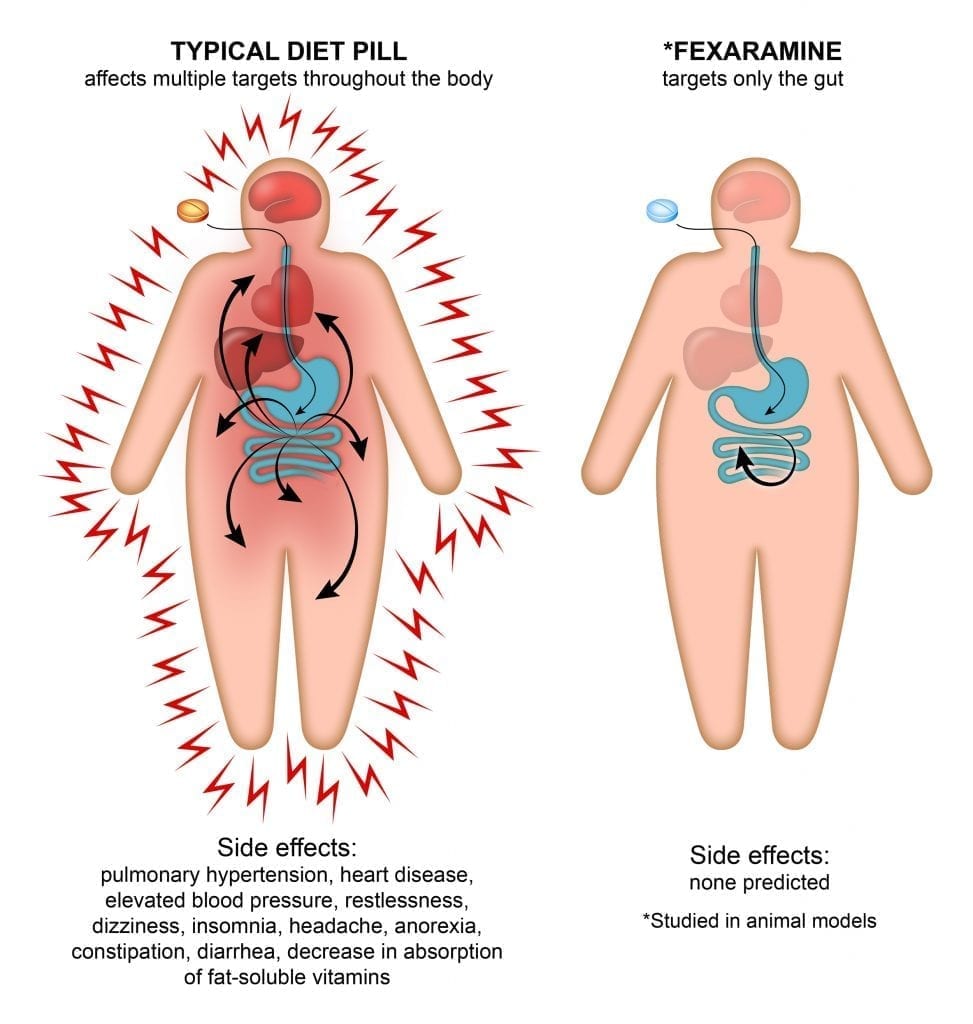
Image: Courtesy of the Salk Institute for Biological Studies
Salk scientists made a more effective diet pill
Salk researchers have developed an entirely new type of pill that tricks the body into thinking it has consumed calories, causing it to burn fat. The compound effectively stopped weight gain, lowered cholesterol, controlled blood sugar and minimized inflammation in mice, making it an excellent candidate for a rapid transition into human clinical trials.
Unlike most diet pills on the market, this new pill, called fexaramine, doesn’t dissolve into the blood like appetite suppressants or caffeine-based diet drugs, but remains in the intestines, causing fewer side effects.
“This pill is like an imaginary meal,” says Ronald Evans, director of Salk’s Gene Expression Laboratory and senior author of the new paper, published January 5, 2014 in Nature Medicine. “It sends out the same signals that normally happen when you eat a lot of food, so the body starts clearing out space to store it. But there are no calories and no change in appetite.”
In the United States, more than a third of adults are obese and 29.1 million people have diabetes, according to the Centers for Disease Control and Prevention. Both obesity and diabetes lead to an increase in health spending, a greater risk of health complications and a shorter lifespan.
Evans’ laboratory has spent nearly two decades studying the farensoid X receptor (FXR), a protein that plays a role in how the body releases bile acids from the liver, digests food and stores fats and sugars. The human body turns on FXR at the beginning of a meal, Evans and others have shown, to prepare for an influx of food. FXR not only triggers the release of bile acids for digestion, but also changes blood sugar levels and causes the body to burn some fats in preparation for the incoming meal.
Pharmaceutical companies aiming to treat obesity, diabetes, liver disease and other metabolic conditions have developed systemic drugs that activate FXR, turning on many pathways that FXR controls. But these drugs affect several organs and come with side effects. Evans wondered whether switching on FXR only in the intestines–rather than the intestines, liver, kidneys and adrenal glands all at once–might have a different outcome.
“When you eat, you have to quickly activate a series of responses all throughout the body,” says Evans. “And the reality is that the very first responder for all this is the intestine.”
Evans and his colleagues developed the fexaramine compound by departing from the drug scaffold that most pharmaceutical companies typically pursue when targeting FXR. “It turns out that when we administer this orally, it only acts in the gut,” explains Michael Downes, a senior staff scientist at Salk and co-corresponding author of the new work. Giving one such drug in a daily pill form that only reaches the intestines–without transporting into the bloodstream that would carry the drug throughout the body–not only curtails side effects but also made the compound better at stopping weight gain.
Read more: “Imaginary meal” tricks the body into losing weight
The Latest on: Fexaramine
[google_news title=”” keyword=”Fexaramine” num_posts=”10″ blurb_length=”0″ show_thumb=”left”]
via Google News
The Latest on: Fexaramine
- Feed has no items.
via Bing News










